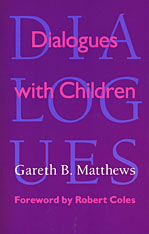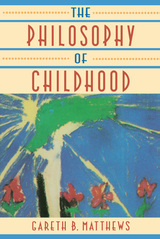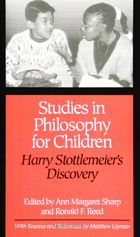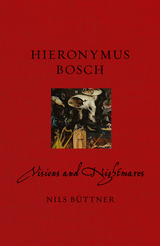

Philosophy and the Young Child presents striking evidence that young children naturally engage in a brand of thought that is genuinely philosophical. In a series of exquisite examples that could only have been gathered by a professional philosopher with an extraordinary respect for young minds, Gareth Matthews demonstrates that children have a capacity for puzzlement and mental play that leads them to tackle many of the classic problems of knowledge, value, and existence that have traditionally formed the core of philosophical thought. Matthews’s anecdotes reveal children reasoning about these problems in a way that must be taken seriously by anyone who wants to understand how children think.
Philosophy and the Young Child provides a powerful antidote to the widespread tendency to underestimate children’s mental ability and patronize their natural curiosity. As Matthews shows, even child psychologists as insightful as Piaget have failed to grasp the subtlety of children’s philosophical frame of mind. Only in children’s literature does Matthews find any sensitivity to children’s natural philosophizing. Old favorites like Winnie the Pooh, the Oz books, and The Bear That Wasn’t are full of philosophical puzzlers that amuse and engage children. More important, these stories manage to strip away the mental defensiveness and conventionality that so often prevent adults from appreciating the way children begin to think about the world.
Gareth Matthews believes that adults have much to gain if they can learn to “do philosophy” with children, and his book is a rich source of useful suggestions for parents, teachers, students, and anyone else who might like to try.

So many questions, such an imagination, endless speculation: the child seems to be a natural philosopher--until the ripe old age of eight or nine, when the spirit of inquiry mysteriously fades. What happened? Was it something we did--or didn't do? Was the child truly the philosophical being he once seemed? Gareth Matthews takes up these concerns in The Philosophy of Childhood, a searching account of children's philosophical potential and of childhood as an area of philosophical inquiry. Seeking a philosophy that represents the range and depth of children's inquisitive minds, Matthews explores both how children think and how we, as adults, think about them.
Adult preconceptions about the mental life of children tend to discourage a child's philosophical bent, Matthews suggests, and he probes the sources of these limiting assumptions: restrictive notions of maturation and conceptual development; possible lapses in episodic memory; the experience of identity and growth as "successive selves," which separate us from our own childhoods. By exposing the underpinnings of our adult views of childhood, Matthews, a philosopher and longtime advocate of children's rights, clears the way for recognizing the philosophy of childhood as a legitimate field of inquiry. He then conducts us through various influential models for understanding what it is to be a child, from the theory that individual development recapitulates the development of the human species to accounts of moral and cognitive development, including Piaget's revolutionary model.
The metaphysics of playdough, the authenticity of children's art, the effects of divorce and intimations of mortality on a child--all have a place in Matthews's rich discussion of the philosophical nature of childhood. His book will prompt us to reconsider the distinctions we make about development and the competencies of mind, and what we lose by denying childhood its full philosophical breadth.

Harry Stottlemeier's Discovery, created by Matthew Lipman in 1969, is now a widely used and highly successful tool for teaching philosophy to children. As the original novel of the Philosophy for Children program, its goal is to present major ideas in the history of philosophy, nurturing children's ability to think for themselves. At present, it is taught in 5,000 schools in the United States and has been translated into eighteen languages worldwide. This collection of essays reflects upon the development, refinement, and maturation of Philosophy for Children and on its relationship to the tradition of philosophy itself.
The contributors are philosophers themselves who have taught from Lipman's novels or conducted workshops instructing elementary school teachers on how most effectively to utilize the program in their classrooms. Teaching Harry raises philosophical issues concerning such concepts as authority, morality, religion, justice, truth, knowledge, beauty, and goodness. Gracing each article with personal experience, the authors recount their own struggles against the claims of philosophers and psychologists who have previously underestimated children's moral capability because of their lack of political and social experience.
READERS
Browse our collection.
PUBLISHERS
See BiblioVault's publisher services.
STUDENT SERVICES
Files for college accessibility offices.
UChicago Accessibility Resources
home | accessibility | search | about | contact us
BiblioVault ® 2001 - 2024
The University of Chicago Press









